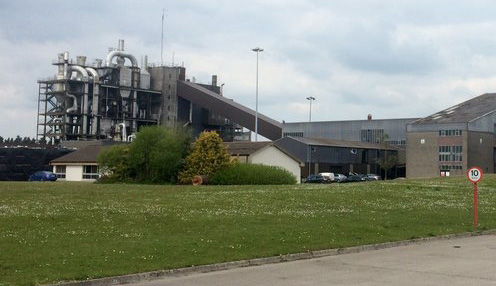“Where Tipperary Leads, Ireland Follows“.
Quote by Thomas Davis, editor of ‘The Nation Newspaper’ in the 1840’s.
A Tipperary company has not only developed but has also patented a new process to transform old plastic into sustainable aviation fuel and wax.
The company known as Trifol Resources are presently operating two large recycling machines, since June of this year, at Tipperary’s former Bord Na Móna briquette factory, same situated close to the village of Littleton, Thurles, in Co. Tipperary.
Already, two major international oil companies have contracted with Trifol Resources to purchase all of the sustainable aviation fuel that the Littleton plant can provide.
Both product produced is observed as a massive achievement especially since this former Bord Na Móna briquette factory, for decades was synonymous with the production of harmful fossil fuels, and now will become a central location for the production of carbon neutral sustainable fuel.
The key to what Trifol is doing at the Littleton plant is a process called ‘pyrolysis’ (latter the heating of an organic material, in the absence of oxygen), which involves a machine that decomposes the waste plastic by heating it at enormous temperatures, in the absence of oxygen or naked flame, until it becomes a gas. This gas is then put through processes that cool it down at different rates of temperature, which in turn determines the required end product, which could be wax or very high-quality diesel or sustainable aviation fuel, or Naphta; latter product which is a very low octane form of petrol.
Trifol Resources claim that their Littleton plant will require up to 75% of all the plastic waste in Ireland that is not currently being collected. The waste plastic being recycled presently at the Littleton plant is mostly different types of polyethylene including farm plastic used in the covering of hay or silage.
In 2019 a Chinese company called Sabrina Integrated Services, in partnership with Bord Na Móna, started a farm plastics recovery and recycling operation right beside the Trifol Resources plant.
The Sabrina operation collects, cleans, and sorts waste farm plastic before either shredding it or turning it into plastic pellets.
To date Trifol has invested some €15.5 million in its Littleton plant. This investment includes €4.5m in grants from the EU and the Irish Climate Fund. This investment has provided the current supporting plant and equipment to enable the conversion of some 4000 tonnes of plastic waste per year.
A further €5m is expected to be invested on upgrading production to 12,000 tonnes, next year; while in 2026 and 2027 the plant plans to install a further 12 large recycling machines at a cost of some €90m, requiring up to 90,000 tonnes of waste plastic each year.
Generated Plastic Statistics:
It is worthy of note that globally only about 9% of produced plastic is currently being recycled.
Some 40% of Europe’s plastic waste is incinerated, while 25% gets dumped into our landfill.
Only 16% of Europe’s plastic waste is collected for recycling, with 19% remains unaccounted for.
Every year about 450 million tonnes of plastic is produced worldwide.
While it is clean, easy to use, sterile and versatile; the product remains the cause of enormous pollution problems and at 58kg per capita, Ireland generates more plastic packaging waste, per person, than any other country within the EU.


Leave a Reply